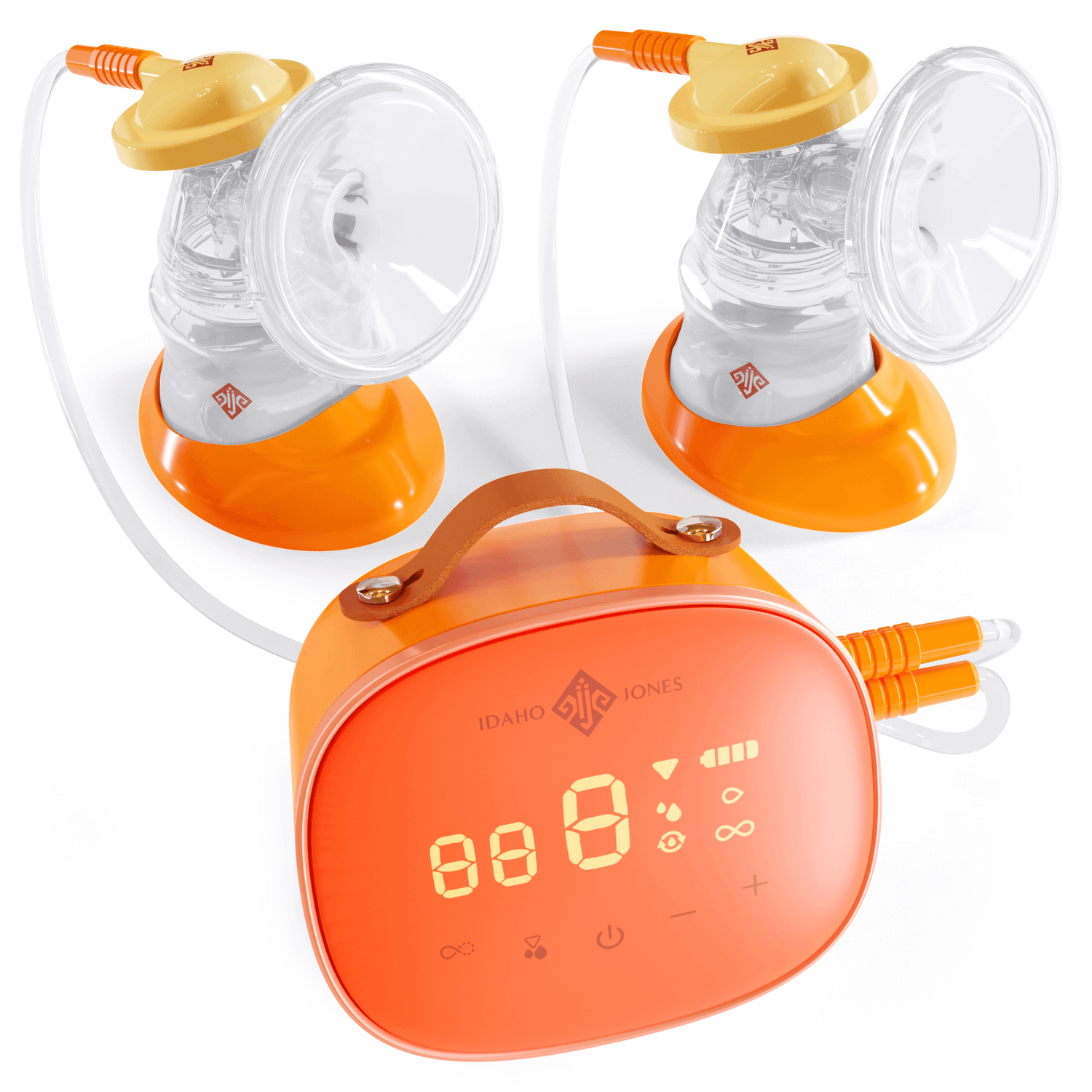Breastfeeding is a crucial aspect of infant development, providing numerous health benefits to both the baby and the mother. While breastfeeding is perceived as natural and instinctive, it does not always come easy. New mothers can face various challenges, including sore nipples, engorgement, mastitis, and low milk supply, which can lead to difficulties in breastfeeding. Additionally, they may experience physical and emotional stress due to sleep deprivation, postpartum hormonal changes, and the demands of caring for a newborn.
Thus, taking care of the breastfeeding mother is crucial to support successful breastfeeding and promote maternal and infant health. In this article, we will discuss evidence-based strategies to support breastfeeding mothers' physical and emotional well-being.
In this article, we use “breastfeeding” to mean both nursing directly from the breast and pumping breast milk with the use of a breast pump.
Physical Well-being
Nutrition: Breastfeeding mothers require an additional 450-500 calories per day to produce breast milk, which can lead to increased hunger and thirst. Therefore, it is essential to maintain a healthy and balanced diet that includes an adequate intake of protein, carbohydrates, and healthy fats, as well as vitamins and minerals, such as calcium and iron. A systematic review of studies found that maternal nutrition significantly influences breast milk composition, and thus, it is vital for the infant's growth and development.
Hydration: Adequate hydration is also crucial for breast milk production. Breastfeeding mothers should aim to drink at least eight glasses of water or other fluids, such as milk, juice, or herbal tea, per day. A randomized controlled trial found that increased fluid intake significantly increased breast milk volume in lactating mothers.
Rest and Sleep: Breastfeeding can be demanding and exhausting, particularly in the first few weeks after childbirth. Therefore, it is essential to prioritize rest and sleep. Studies have shown that sleep deprivation can negatively impact breast milk production and lead to breastfeeding difficulties, such as decreased milk supply and poor infant weight gain. In the absence of getting seven hours of sleep per night, which is nearly impossible for mothers of newborns, it’s still important to keep in mind that small naps during the day or just resting without much physical activity, would be beneficial for milk production.
Exercise: Physical activity is essential for overall health and well-being, but it is important to avoid overexertion or high-impact activities that can cause discomfort or pain. Studies have shown that moderate-intensity exercise does not affect breast milk production or composition and may even improve mood and reduce stress. Breastfeeding mothers should consult with their healthcare provider to determine safe and appropriate exercise routines.
Breast Care: Breast care is crucial to prevent and manage common breastfeeding problems, such as engorgement, sore nipples, and mastitis. Breastfeeding mothers should ensure proper latch and positioning of the infant, avoid tight-fitting bras or clothing, and apply warm compresses or cool packs as needed. A systematic review of studies found that breast massage and warm compresses significantly reduce breast engorgement and improve milk flow.
Emotional Well-being
Social Support: Breastfeeding can be emotionally challenging, and mothers may experience feelings of stress, anxiety, or isolation. Thus, social support from family, friends, or lactation consultants is crucial to provide encouragement, advice, and assistance with breastfeeding. Studies have shown that social support positively influences breastfeeding outcomes, such as duration and exclusivity.
Mental Health: Postpartum depression (PPD) is a prevalent mental health condition that affects up to 15% of mothers. PPD can negatively impact breastfeeding, leading to decreased milk supply, early cessation of breastfeeding, and poorer infant outcomes. Therefore, it is crucial to monitor and address mental health concerns in breastfeeding mothers. A systematic review of studies found that psychotherapy and pharmacotherapy can effectively treat PPD in breastfeeding mothers without significant adverse effects on breast milk production or infant health. Healthcare providers should screen for PPD symptoms and provide appropriate referrals for treatment.
Self-care: Taking care of oneself is essential for overall well-being and is particularly crucial for breastfeeding mothers. Mothers should prioritize self-care activities that promote relaxation, such as taking a warm bath, reading a book, or practicing mindfulness. A randomized controlled trial found that mindfulness-based stress reduction significantly improved maternal mood, stress, and breastfeeding outcomes.
Time Management: Juggling breastfeeding and other responsibilities, such as work, household chores, and childcare, can be overwhelming. Therefore, time management strategies, such as delegating tasks, prioritizing self-care, and setting realistic goals, can help alleviate stress and improve overall well-being. A systematic review of studies found that time management interventions significantly improved breastfeeding outcomes, such as duration and exclusivity.
Education and Counseling: Breastfeeding education and counseling can help mothers feel more confident and prepared to breastfeed successfully. Healthcare providers can provide information on breastfeeding techniques, infant feeding cues, and common breastfeeding problems. A randomized controlled trial found that breastfeeding education significantly increased how long a mother breastfed.
Breastfeeding is a vital aspect of infant development that provides numerous health benefits to both the baby and the mother. However, breastfeeding can be challenging, and mothers may experience physical and emotional stress that can affect breastfeeding outcomes. Therefore, taking care of the breastfeeding mother is crucial to support successful breastfeeding and promote maternal and infant health. Evidence-based strategies, such as proper nutrition, hydration, rest, exercise, breast care, social support, mental health monitoring, self-care, time management, and education and counseling, can help support breastfeeding mothers' physical and emotional well-being. Healthcare providers should prioritize these strategies to ensure optimal breastfeeding outcomes and promote maternal and infant health.


